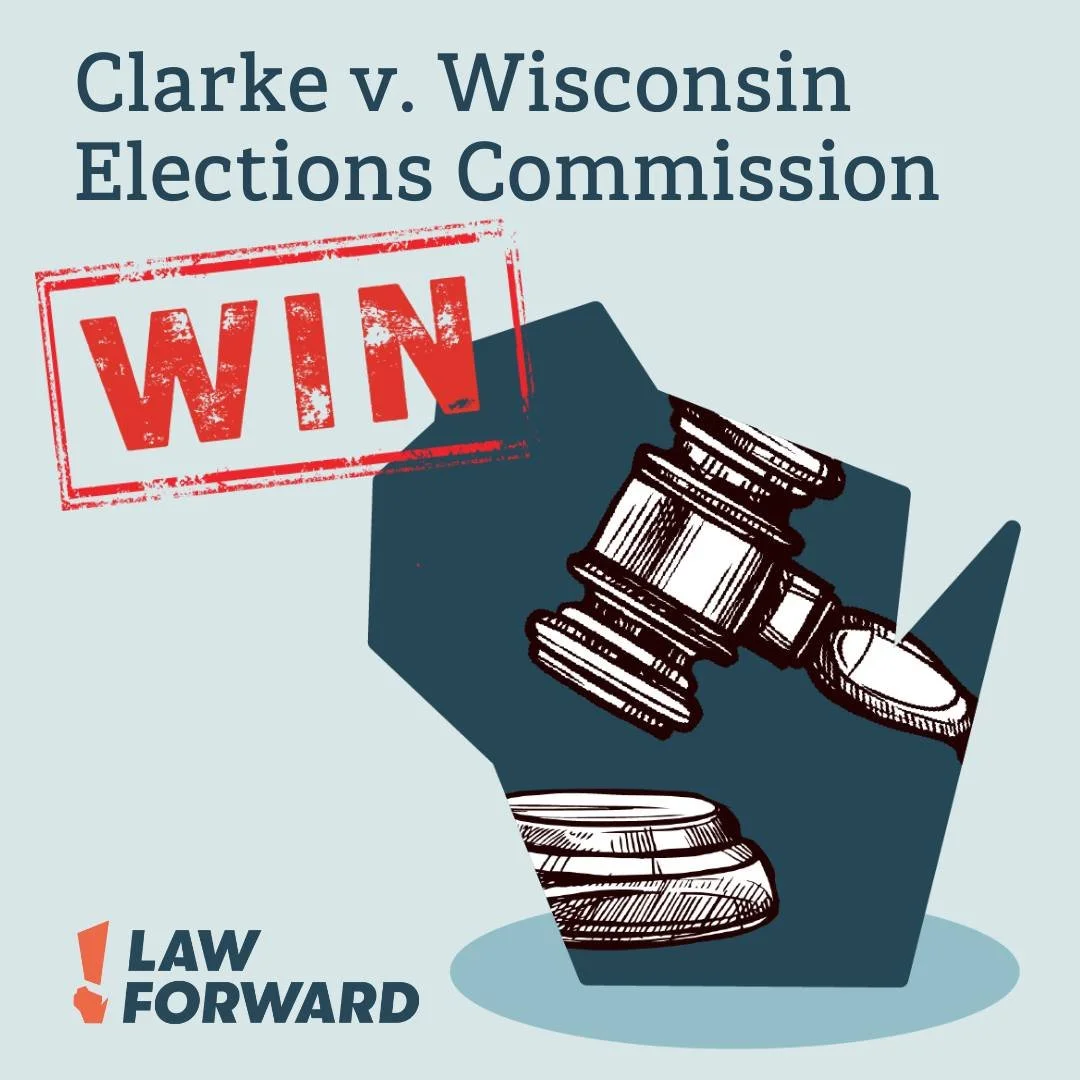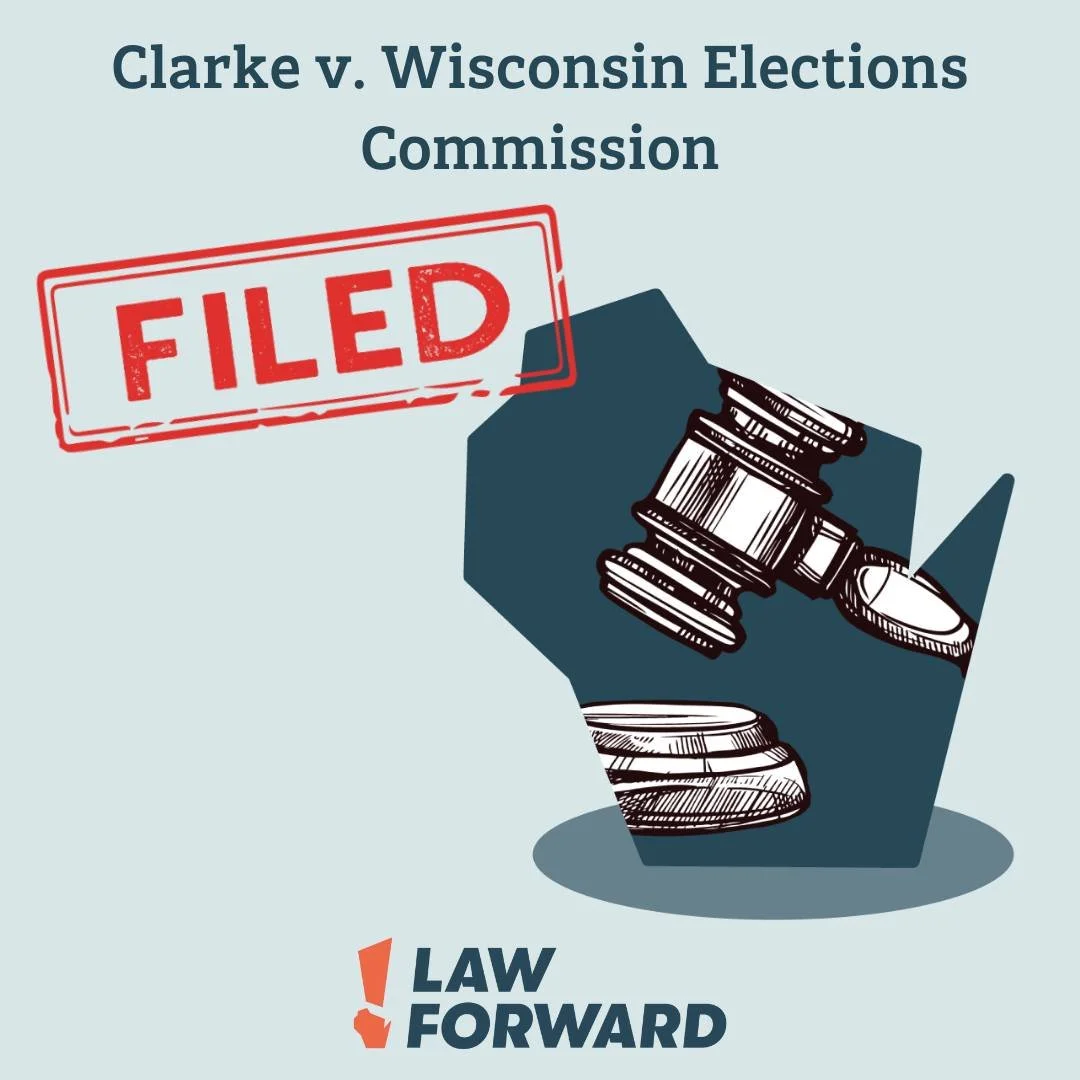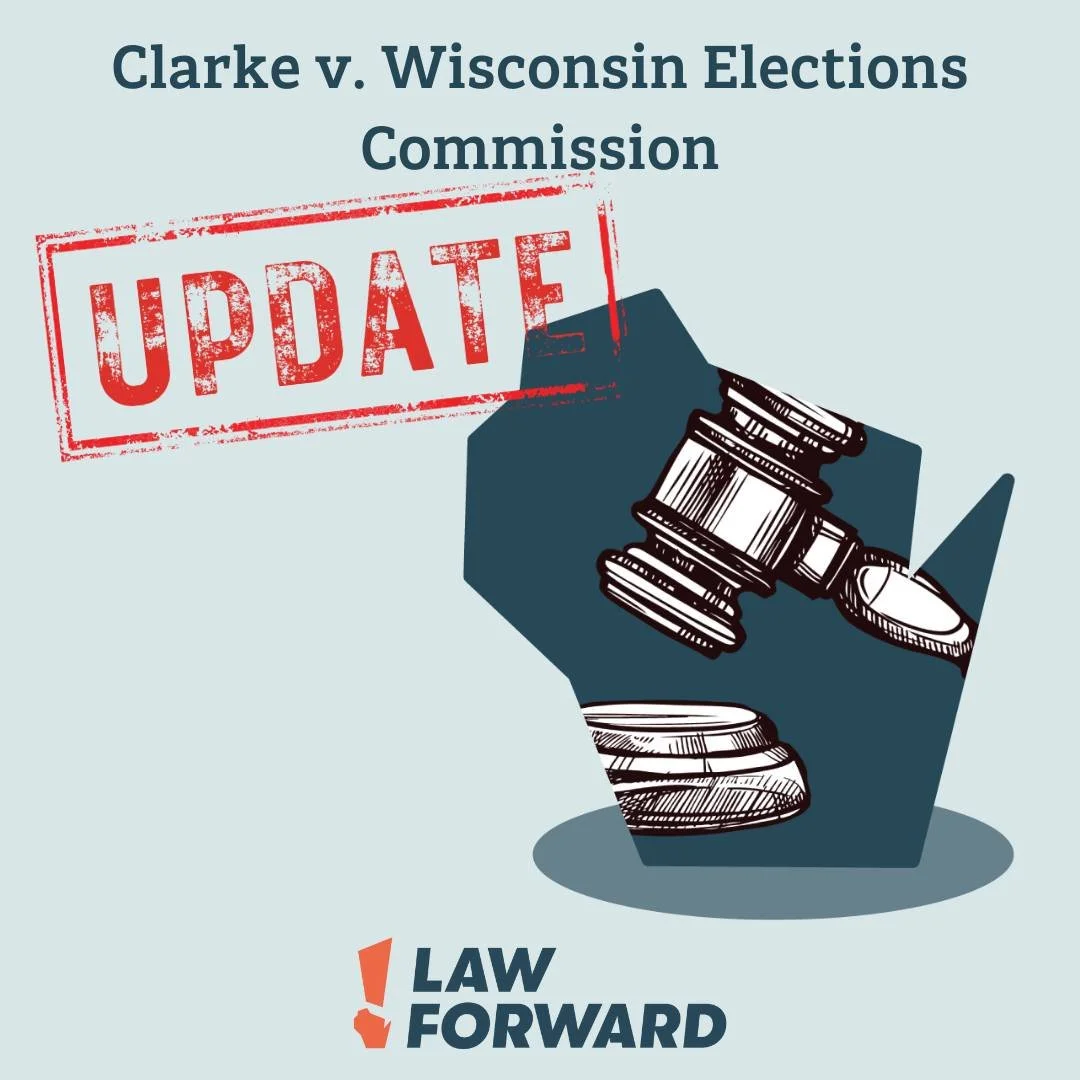Maps in WI Supreme Court 2023
The most recent events are listed at the top and go back in time down the page.
February 1, 2024
The two consultants the Wisconsin Supreme Court appointed to review the maps in this case, Prof. Jonathan Cervas and Prof. Bernard Grofman, released their report. Our team will be further analyzing the report and will weigh in thoroughly on Feb. 8. Dan Lenz, Staff Counsel said:
“This expert report affirms what we knew: the maps we filed performed well on all criteria the Court set. We are pleased that the consultants dismissed the Republican-controlled Legislature map and the Johnson intervenors map for what they are –Republican gerrymanders that were drawn solely for Republicans to maintain power and avoid accountability to the voters. What this report ultimately means is that the extreme Republican gerrymander Wisconsinites have been living under for 13 years is very close to coming to an end. This is another important step to once again have a representative democracy in Wisconsin. Our clients – 19 voters from across the state – are excited to be a part of bringing fair maps back to Wisconsin.”
Wisconsin Fair Maps Coalition Statement on Redistricting Experts’ Report
Today is a new day in Wisconsin. Since 2011, Wisconsinites have suffered under some of the most gerrymandered voting district maps in the country. The result: voters have not been fairly represented in the Wisconsin State Legislature. The issues they care about and the needs their communities face have not been addressed.That is about to change.
The expert report released yesterday in Clarke v. Wisconsin Election Commission by Drs. Grofman and Cervas is crystal clear in its assessment of the maps submitted to the Court. The Republican Legislatures’ and Johnson (WILL) Intervenors’ maps would perpetuate the 2011 and 2022 gerrymanders. The plans submitted by the Clarke Petitioners, Wright Intervenors, Senate Democratic Intervenors, and Governor Evers would “create a competitive environment such that most of the time, the party that wins the most votes will win the most seats. These plans reflect the political competitiveness of the state.”
That’s exactly what the Wisconsin Fair Maps Coalition has been working to achieve - fair voting maps that reflect the will of the people.
December 22, 2023
The Wisconsin Supreme Court ordered new maps ahead of the 2024 election.
The Court found that the current Wisconsin legislative district maps are unconstitutional based on the contiguity requirement in the WI State Constitution ( Article IV, Sections 4 and 5). Because at least 50 of 99 assembly districts and at least 20 of 33 senate districts violate this mandate, the maps are unconstitutional.
The Court prohibited the “Wisconsin Elections Commission from using the current maps in all future elections.” The Court set in motion a timeline for the parties to create and submit maps to the Court based on criteria it announced in its decision. Independent court-appointed consultants, Dr. Bernard Grofman and Dr. Jonathan Cervas, will review the maps based on those and issue a report to the Court with their findings.
The Court also stated that they are “hopeful that the legislative process will produce new legislative district maps.” Those maps would be subject to the normal processes for passing bills, including the possibility of a gubernatorial veto. If the Legislature is unable to pass constitutional maps, the Court would need to select an appropriate remedial plan.
Court’s timeline for next steps:
December 26, 2023: Dr. Bernard Grofman and Dr. Jonathan Cervas shall submit a letter to this court identifying the technical specifications and necessary data that should be submitted with each of the parties' proposed remedial maps.
Parties must submit their maps as data files, and it is suggested they also provide a link to their map on Dave’s Redistricting App.
Parties should provide data analysis based on the Court’s directives:
Population Equality
Political Subdivision Splits
Contiguity
Compactness
Federal Law Compliance
Community Considerations
Political Neutrality
Read the entire Technical Specifications and Data Requirements for Proposed Remedial Maps Submission here.
December 30, 2023: Parties agreed on the redistricting data to be used by all the parties, Dr. Grofman and Dr. Cervas, and the Court.
January 12, 2024: Parties filed proposed remedial maps complying with the parameters set forth in the Court's December 22, 2023 decision and with the technical specifications and data requirements identified by Dr. Grofman and Dr. Cervas.
Additional documents related to proposed map submissions can be found here: Rebecca Clarke v. Wisconsin Elections Commission
January 22, 2024: Each party filed a brief responding to the other parties’ maps.
January 22, 2024: Any non-party that was previously granted leave to file an amicus curiae brief in this proceeding was able to file a non-party brief.
February 1, 2024: Dr. Grofman and Dr. Cervas filed a written report evaluating each of the parties' submissions based on the criteria identified in the Court's December 22, 2023 opinion. Only if no such submission meets the criteria identified should Dr. Grofman and Dr. Cervas submit their own proposed remedial map.
February 8, 2024: The parties and all amici who have been granted leave to participate may submit a response brief addressing the report of Dr. Grofman and Dr. Cervas.
Court’s Order challenged
On December 28, 2023, the GOP legislature’s legal team, along with WILL, filed a motion to the Court asking it to reconsider its December 22, 2023, decision.
On January 11, 2024, the Court REJECTED the GOP legislature’s motion to reconsider.
In accordance with the Court’s order, parties submitted remedial maps on January 12, 2024, that comply with the Court’s directives.
The bottom line:
Wisconsin’s current maps are unconstitutional and cannot be used for future elections.
There must be constitutional maps in place by the spring of 2024.
Read all Court filings here: Rebecca Clarke v. Wisconsin Elections Commission Appeal Number 2023AP001399 - OA
On Nov. 21, 2023 Law Forward – with co-counsels Stafford Rosenbaum, the Election Law Clinic at Harvard Law School, Campaign Legal Center, and Arnold & Porter – argued in front of the Wisconsin State Supreme Court challenging the extreme partisan gerrymandering of Wisconsin’s legislative maps.
Watch the oral arguments here: https://wiseye.org/2023/11/21/wisconsin-supreme-court-rebecca-clarke-v-wisconsin-elections-commission/
August 2, 2023: Clarke v. WEC challenges Wisconsin’s legislative voting district maps in Wisconsin Supreme Court
On August 2, Law Forward and their co-counsel filed a Petition for Original Jurisdiction with the Wisconsin Supreme Court asking the Court to find the current Legislative voting maps unconstitutional on five claims:
Whether the state legislative redistricting plans proposed by the Legislature and imposed by this Court in Johnson v. Wisconsin Elections Commission, 2022 WI 19, 401 Wis. 2d 198, 972 N.W.2d 559 (“Johnson III”), are extreme partisan gerrymanders that violate Article I, Section 1 of the Wisconsin Constitution’s guarantee of equal protection under law; and whether this cause of action is justiciable in Wisconsin courts.
Whether the state legislative redistricting plans proposed by the Legislature and imposed by this Court in Johnson III are extreme partisan gerrymanders that retaliate against voters based on their viewpoint and exercise of free speech and abridge the ability of voters with disfavored political views to associate with others to advance their political beliefs in violation of Article I, Sections 3 and 4 of the Wisconsin Constitution; and whether these causes of action are justiciable in Wisconsin courts.
Whether the state legislative redistricting plans proposed by the Legislature and imposed by this Court in Johnson III are extreme partisan gerrymanders that fail to “adhere to justice, moderation, temperance, frugality, and virtue, ... [and] fundamental principles” in violation of Article I, Section 22 of the Wisconsin Constitution; and whether this cause of action is justiciable in Wisconsin courts.
Whether the state legislative redistricting plans proposed by the Legislature and imposed by this Court in Johnson III violate the requirement of Article IV, Sections 4 and 5 of the Wisconsin Constitution that legislators be elected from districts consisting of “contiguous territory.”
Whether the state legislative redistricting plans proposed by the Legislature and imposed by this Court in Johnson III violate the separation of powers principle inherent in the Constitution’s division of legislative, executive, and judicial power by usurping the Governor’s core constitutional power to veto legislation and the Legislature’s core constitutional power to override such a veto.
October 6, 2023: Wisconsin Supreme Court agrees to hear two Clarke v. WEC claims
On October 6, the Wisconsin Supreme Court issued an order that it would hear Clarke v. WEC’s claims #4 & #5 regarding ‘contiguous territory’ and the separation of powers principle, and ordered the parties to address these questions:
Do the existing state legislative maps violate the contiguity requirements contained in Article IV, Sections 4 and 5 of the Wisconsin Constitution?
Did the adoption of the existing state legislative maps violate the Wisconsin Constitution's separation of powers?
If the court rules that Wisconsin's existing state legislative maps violate the Wisconsin Constitution for either or both of these reasons and the legislature and the governor then fail to adopt state legislative maps that comply with the Wisconsin Constitution, what standards should guide the court in imposing a remedy for the constitutional violation(s)?
What fact-finding, if any, will be required if the court determines there is a constitutional violation based on the contiguity clauses and/or the separation-of-powers doctrine and the court is required to craft a remedy for the violation? If fact-finding will be required, what process should be used to resolve questions of fact?
The Court also rejected the Wright petitioners’ claims and set a schedule for next steps.
October 10, 2023: Several parties filed motions to intervene
Governor Evers, Wright petitioners, and inviduals represented by Wisconsin Institute for Law & Liberty filed motions to intervene. All are accepted.
October 16, 2023: All parties submitted briefs in response to the four questions presented by the Court in their Oct. 6 order.
October 30, 2023: Response briefs from all parties were submitted to the Court.
November 8, 2023: Amicus Briefs were submitted to the Court.
The Fair Maps Coalition activists’ groups submitted an Amicus Brief, along with six other parties.




